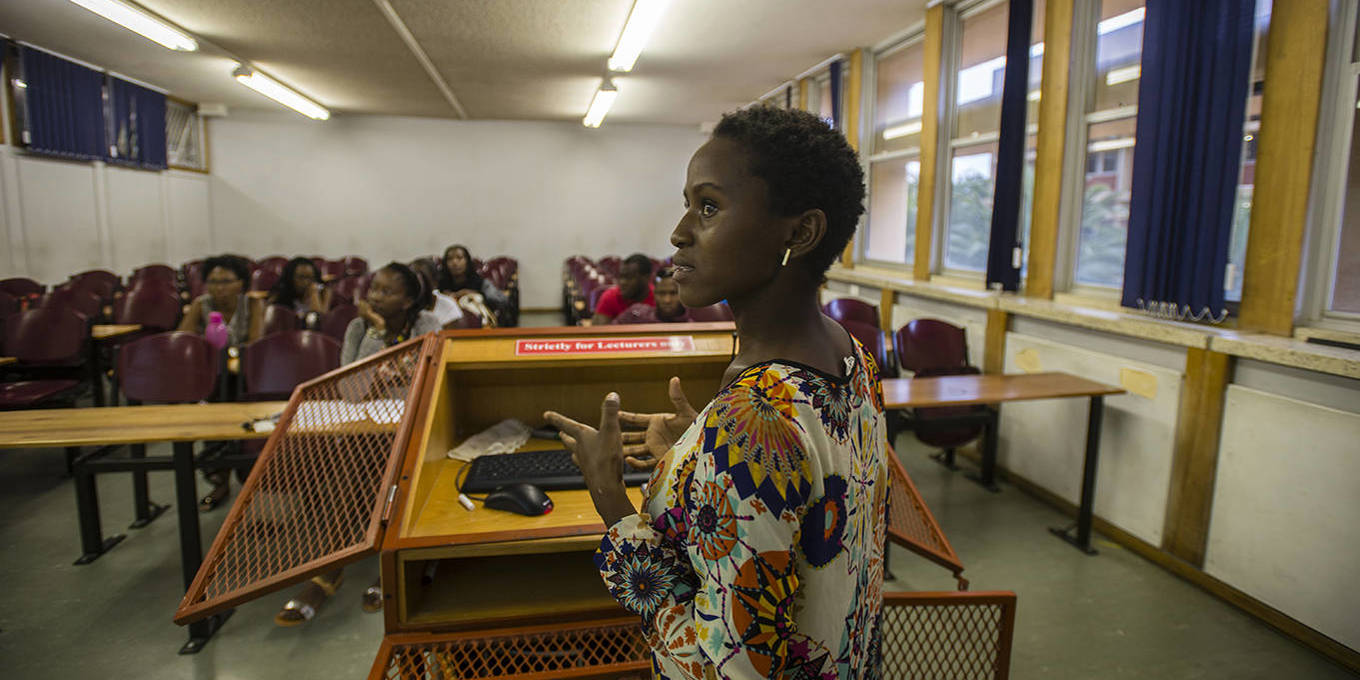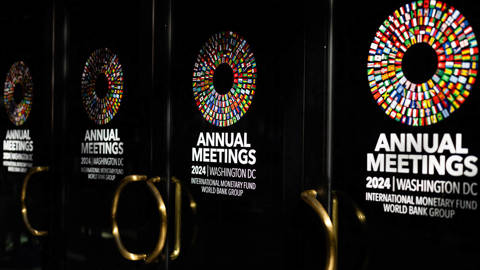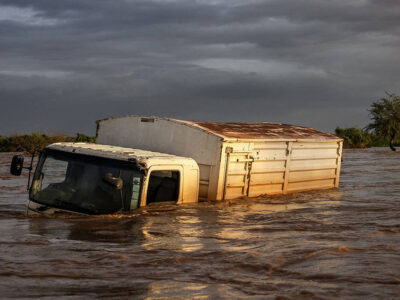
African countries’ biggest development challenge is that they are poorly governed. To ensure that the continent’s governments can secure borders, raise revenue through taxation, and provide social services, independent universities like the African School of Governance must train top graduates for public-policy leadership positions.
KIGALI – African leaders – and their counterparts in Western countries and international organizations such as the United Nations, the International Monetary Fund, and the World Bank – often misdiagnose the continent’s development challenges. More than increased aid, debt relief, and foreign investment, Africa needs to resolve its governance crisis – the source of all its problems.
- The Brutes’ New Suits
 Spencer Platt/Getty Images
Spencer Platt/Getty Images - China’s Climate Balancing Act
 Getty Images
Getty Images
Subscriber Favorite
- Toward a Fifth World Order
 Tierney Cross/AFP via Getty Images
Tierney Cross/AFP via Getty Images
The continent must focus on developing the competence required to govern itself effectively and drive its own development trajectory. That means boosting state capacity at the most basic level to enable African governments to secure borders, raise revenue through taxation, and provide social services and other public goods. Without these reforms, Africa’s countries will continue to fail to deliver stability and broad-based prosperity, and most external financing will continue to be misallocated and misappropriated, resulting in suboptimal outcomes for the poor.
For starters, the continent’s many “ungoverned spaces” have allowed terrorist groups – from Boko Haram and the Islamic State West Africa Province (ISWAP) in Nigeria and the Sahel to al-Shabaab in East Africa – to proliferate. They have also nurtured large-scale conflicts in Sudan, the Democratic Republic of the Congo, Mozambique’s Cabo Delgado province, and elsewhere. To protect their citizens against violence, African governments must regain full control of their territories.
African governments must also improve their tax systems, the anchor of any modern economy. The ratio of tax revenue to GDP is mostly in the high single and low double-digit percentages on the continent, significantly lower than in most European and Asian countries. The resulting budget shortfalls have fueled a penchant for foreign borrowing that has pushed some African countries into debt distress.
This state of affairs reflects two main factors. First, many Africans are reluctant to pay taxes, because they do not trust their government to use budget revenue to finance public goods. Too often, corrupt politicians and officials raid the state’s coffers. Second, many African countries have large informal economies, with most people and businesses operating outside the tax net. Widening that net would go a long way toward fixing the problem, and is a better alternative to levying high rates on a narrow base.
But African countries must also improve their ability to provide basic services such as health care, education, potable water, and sanitation. Most of the continent’s governments, however, worship at the altar of GDP, using it as their main measure of economic progress. As a result, Africa’s resource-rich and commodity-dependent countries fail to achieve the kind of broad-based, sustainable growth that lifts millions out of poverty.
Secure your copy of PS Quarterly: The Climate Crucible 
Secure your copy of PS Quarterly: The Climate Crucible
The newest issue of our magazine, PS Quarterly: The Climate Crucible, is here. To gain digital access to all of the magazine’s content, and receive your print copy, subscribe to PS Premium now.
Subscribe Now
Paradoxically, the shift from military dictatorships to multiparty democracy in Africa over the past three decades has not yielded better results, because political power has become unmoored from good governance. African leaders now fixate on winning, by hook or by crook, conducting ritualistic elections that often lack transparency and truly independent monitors.
Moreover, politics in many African countries is shaped by ethnic tensions, owing to the legacy of arbitrarily drawn colonial boundaries. Voters tend to decide whom to support based on candidates’ sectarian identities – and their willingness to give handouts. High levels of illiteracy only add to the challenges that democracy faces on the continent.
If Africa is to strengthen state capacity, it needs competent technocratic governments and strong institutions. Elected politicians must resist the temptation to pack agencies that ought to be independent and apolitical with unqualified, sycophantic party hacks.
Equally important, skills that are often absent or lacking among the continent’s politicians and officials must be established at scale. These include knowledge of economics, public policy, program evaluation and monitoring, data analytics, statistics, risk management, urban policy, local government administration, public-private partnerships, and international political economy.
Home-grown academic institutions are starting to fill this human-capital gap. One of the most promising new entries is the African School of Governance, of which I am president. Located in Kigali, Rwanda, this professional graduate school offers public-policy and leadership education and research programs that are distinctly African. Established by continental leaders, including Rwandan President Paul Kagame and former Ethiopian Prime Minister Hailemariam Desalegn, and with support from the Mastercard Foundation, the university aims to train politicians and bureaucrats to overcome the obstacles impeding Africa’s progress on achieving sustainable growth.
African leaders must now focus on preparing those who will take the baton from them. They and anyone else who supports Africa’s aspirations should support independent initiatives – like the African School of Governance – that seek to address the roots of the continent’s development challenges. The uncomfortable truth is that Africa lags behind the rest of the world largely because it is poorly governed. Blaming other factors – whether the legacy of colonialism or the influence of external actors – is merely an excuse for inaction.











Comments